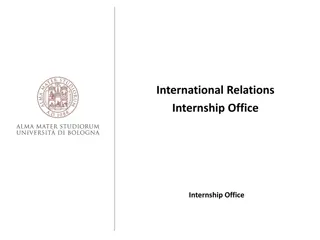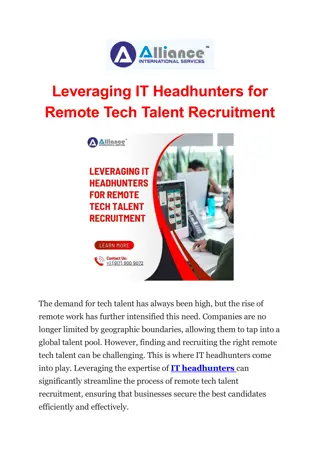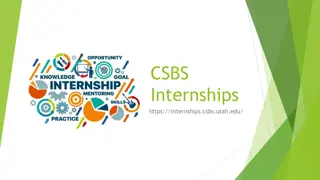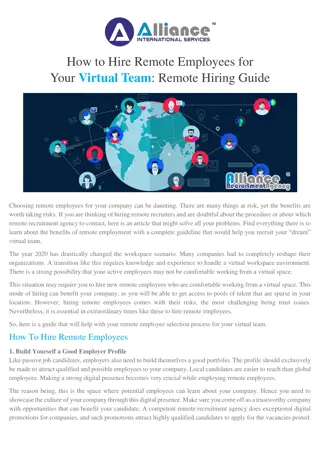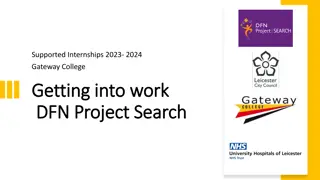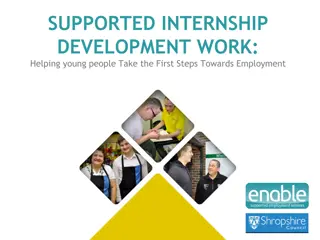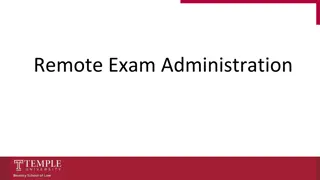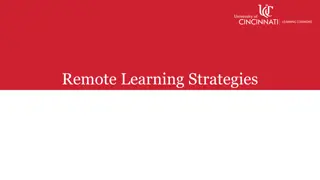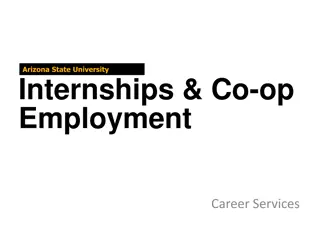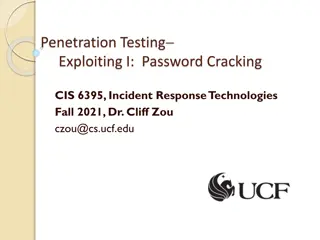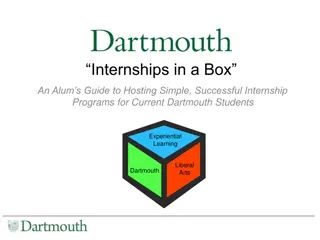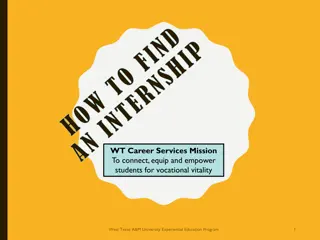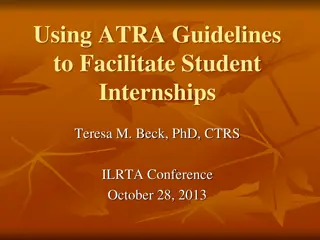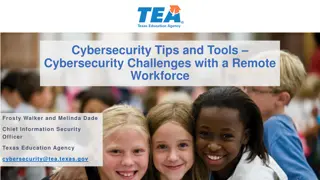Remote Academic Internships: Tips and Strategies
Explore the world of remote academic internships with insights on considerations, tips for working with community partners, and examples of services offered. Discover how technology and collaboration can enhance virtual internship experiences for students and organizations alike.
Download Presentation

Please find below an Image/Link to download the presentation.
The content on the website is provided AS IS for your information and personal use only. It may not be sold, licensed, or shared on other websites without obtaining consent from the author. Download presentation by click this link. If you encounter any issues during the download, it is possible that the publisher has removed the file from their server.
E N D
Presentation Transcript
ACADEMIC INTERNSHIPS IN A VIRTUAL WORLD
WELCOME! Introductions please share: Your name Your department or program affiliation In one word, a favorite summer hobby Please note this session is being recorded..
LARGER CONSIDERATIONS FOR REMOTE ACADEMIC INTERNSHIPS Unique features of AI may drive your decision- making: Number of hours? Required in your Department or Program? Required for training or certification? Decision around content of remote AI likely to depend on needs of community partner, student, professional organizations, etc.
GENERAL TIPS FOR WORKING WITH COMMUNITY PARTNERS See existing partnerships at www.csus.edu/cec Cultivate ongoing partnerships by: Listening to partners needs Providing examples of virtual/remote AI work, if needed Collaborating on internship description Preparing students for virtual/remote work
COMMUNITY PARTNER FEEDBACK In an online survey, 48 of 59 partners (as of 5/14/2020) said they could envision a virtual role for students Wide variety of agencies Wide variety of majors/courses desired by partners We ll place a Google Doc on CEC website to make full responses available
EXAMPLES OF REMOTE DIRECT SERVICES From our Community Partner Survey Additional CEC ideas Distance learning or services through Zoom Remote staffing for hot lines Create recordings of stories or enrichment lessons Customer service Check-ins with seniors or other individuals Outreach on behalf of organization (e.g., fundraising) Shadowing phone appointments Note:importance of bilingual or multi- lingual students Scheduling or administration through email, phone, or video
EXAMPLES OF REMOTE CAPACITY BUILDING From our Community Partner Survey Additional CEC ideas Brainstorming strategies for indirect volunteer support Conduct literature review using CSUS Library Create program materials or other methods for information-sharing Develop recorded how to videos around how to access remote services Developing content for social media, website, and other marketing efforts Conducting and analyzing research Grant writing Curriculum development
DISCUSSION 1. What steps are needed to prepare for virtual Academic Internships? 2. How can the CEC help?
DISCUSSION 1. What steps are needed to prepare for virtual Academic Internships? 2. How can the CEC help?
ADDITIONAL CONSIDERATIONS Technology issues for faculty, students, and CPs Additional technology, hardware or software, or training may be needed. Privacy and confidentiality issues Nature of supervision, both for instructor and community partner, may look quite different Typical requirements may shift TB tests, background checks, etc.
RESOURCES Visit www.csus.edu/cec for additional resources Information about AI Community partner survey data Faculty and staff idea share spreadsheet Links and resources











